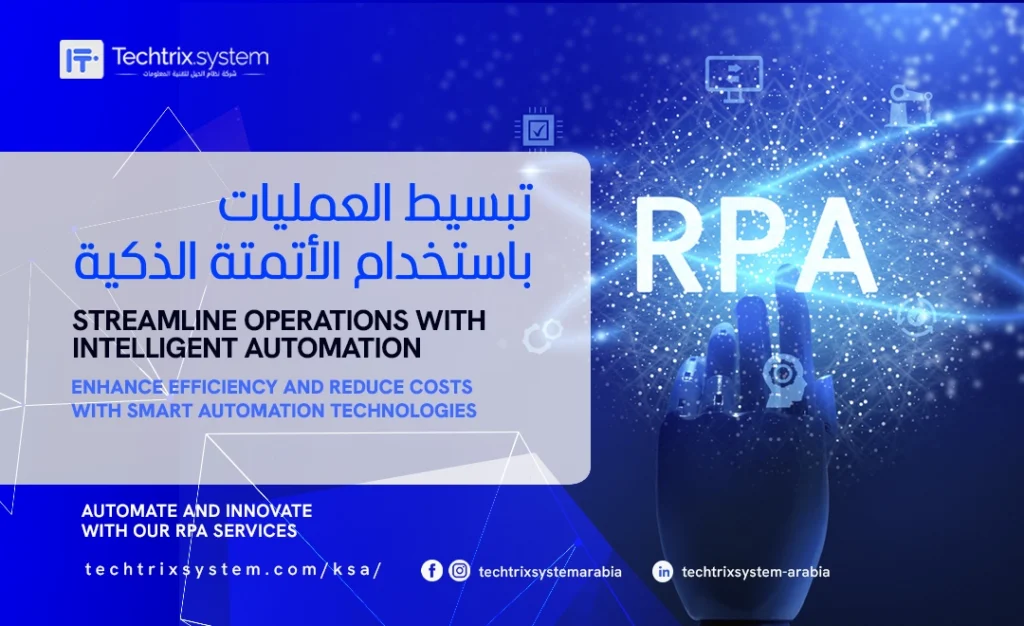Top 05 Digital Transformation Services in Saudi Arabia

The business is not considered advanced if it’s not digitalized. Digital Transformation Industry is reshaping businesses globally, and Saudi Arabia is no exception. As the Kingdom advances its Vision 2030 agenda, adopting digital business transformation Services has become paramount for enhancing operational efficiency, customer experience, and overall economic growth.
In this blog, we explore the top five Digital Transformation industry Services in Saudi Arabia that are driving this technological evolution.
5 Insightful Digital Transformation Services Rankings in Saudi Arabia
Cybersecurity Services:
This digital business transformation service encompasses strategies, technologies, and practices designed to protect networks, systems, and data from unauthorized access, attacks, and damage. It involves a range of measures, including network security, application security, endpoint security, and data security, aimed at maintaining confidentiality, integrity, and availability of information assets. Cybersecurity Services are crucial in protecting organizations from the increasing threat of cyberattacks.
In 2023, Saudi Arabia witnessed a 57% rise in cyberattacks, emphasizing the need for cybersecurity measures (Source).
Effective cybersecurity solutions safeguard sensitive data, ensure business continuity, and build customer trust.
Cloud Computing Solutions:
Cloud computing refers to the delivery of computing services over the internet (“the cloud”) to offer expandable resources, including computing power, storage, and applications, without the need for on-premises infrastructure. This digital business transformation service enables organizations to access and utilize IT resources on-demand, pay-as-you-go. Cloud computing supports various deployment models (public, private, and hybrid) and service models (IaaS, PaaS, SaaS). Cloud computing solutions facilitate flexible and cost-effective IT infrastructure.
By 2025, the cloud computing market in Saudi Arabia is expected to grow at a CAGR of 17.29% (Source).
Organizations are leveraging cloud services to enhance collaboration, streamline operations, and drive innovation without the burden of maintaining physical servers.
Customer Enterprise Applications:
Customer Enterprise Applications (CEA) are software solutions designed to automate business processes related to customer management and enterprise resource planning (ERP). This digital business transformation service typically includes Customer Relationship Management (CRM) systems and ERP software, which integrate various functions such as sales, marketing, customer support, finance, human resources, and supply chain management. These applications enable organizations to improve customer interactions, and make data-driven decisions to drive business growth and profitability.
Implementing Customer Enterprise Applications Services in Saudi Arabia, 65% of businesses have reported improved customer satisfaction.
These applications provide real-time data insights, automate workflows, and enhance decision-making.
Quality Assurance and Testing:
Quality Assurance involves systematic processes, methodologies, and activities aimed at ensuring that software applications, systems, and products meet specified requirements and standards. This digital business transformation service includes testing and validation activities throughout the software development lifecycle to identify defects, verify functionality, validate performance, and ensure compliance with quality criteria. Quality Assurance (QA) and Inspection ensure that digital products meet specified requirements and deliver exceptional user experiences.
The global market for Quality Assurance Services is projected to reach $40 billion by 2026, with significant contributions from the Middle East; specifically Saudi Arabia.
Quality Assurance processes, including testing and validation, are critical for delivering high-quality software products.
Intelligent Automation and Robotic Process Automation (RPA):
Intelligent Automation and Robotic Process Automation (RPA) involve the use of automation technologies, including artificial intelligence (AI) and machine learning (ML), to automate repetitive, rule-based tasks and business processes. This digital business transformation service uses robots to mimic human actions to execute tasks across multiple systems, applications, and data sources without human intervention. Intelligent automation goes beyond traditional RPA by incorporating AI capabilities to analyze data, make decisions, and learn from interactions. Intelligent Automation and Robotic Process Automation (RPA) are making the business operations well organized by automating repetitive tasks and improving efficiency.
In Saudi Arabia, the adoption of RPA is growing, with businesses experiencing up to 30% cost savings.
These technologies free up human resources for strategic activities, enhance accuracy, and accelerate processes.

The Significance of Progressive Digital Transformation in Modern Saudi Arabia
To reduce its dependency on oil, Saudi Arabia needs to take major steps, like implementing Digital Transformation strategy nationwide, as it aligns with the Vision 2030 initiative to diversify the economy. Embracing digital solutions enhances competitiveness, innovation, and public services. Moreover, it supports the creation of a digital-first ecosystem, attracts foreign investments, and drives sustainable growth, which can be beneficial for the country.
The Optimized Saudi Arabia's Digital Transformation Industry Strategy 2024
The Kingdom of Saudi Arabia has made significant strides in integrating digital technologies into its economy, society, and government operations. These strategies aim to enable and accelerate the government’s transformation efficiently and effectively. In line with Vision 2030, the Digital Transformation industry of the Saudi government is an integral, conclusive, and pragmatic strategy that aims to lead a change in the market. These efforts aim to enhance efficiency and effectiveness across all levels of governance. Aligned with Vision 2030, a strategic blueprint for transforming the country’s economy and society, Saudi Arabia has launched several initiatives and programs. These include the National Transformation Program and the Saudi Vision 2030 Realization Program, focusing on areas like improving government services online, building digital infrastructure, ensuring cybersecurity, and fostering innovation and entrepreneurship. These steps are crucial in driving Saudi Arabia’s growth and development in the digital age. (Source)

The Spectrum of Adaptive Digital Transformation Services in KSA
These Digital Transformation Services are proving invaluable in driving Digital Transformation terminology and contributing significantly to the country’s overall growth. Many Digital Transformation service providers recognize the importance and are actively delivering these essential Services. Beyond these, numerous other Digital Transformation Services are also pivotal, but the following ones stand out prominently:
Data Analytics and Business Intelligence: This provides insights through data analysis, aids in strategic decision-making, and helps identify trends and opportunities for business growth.
AI and Machine Learning: Automate complex tasks, predict outcomes using data-driven algorithms, and enhance customer experiences through intelligent solutions.
Internet of Things (IoT): Connects devices to the internet, enables real-time data exchange, and improves operational efficiency through smart systems.
IT Support and Maintenance: Ensures the smooth operation of IT infrastructure, provides troubleshooting, and performs regular maintenance to prevent downtime.
Mobile and Web Application Development: Creates user-friendly mobile and web applications, enhances customer engagement, and supports business operations through digital platforms.
Digital Marketing: Promotes brands through digital channels, reaches a wider audience, and drives business growth through targeted marketing strategies.
Augmented Reality Solutions: Enhances user experiences by overlaying digital information on the real world, providing immersive and interactive experiences.
Digital Transformation Consulting: Provides strategic guidance on adopting digital technologies, assesses current capabilities, and develops roadmaps for successful Digital Transformation.
Techtrix System Arabia Redefining Digital Transformation Services

Techtrix System Arabia stands as a beacon of Digital Transformation strategy in Saudi Arabia, providing Services across critical domains such as cybersecurity, cloud computing, customer enterprise applications, quality assurance, intelligent automation, and many more. At Techtrix, we empower businesses to not just adapt but grow in the dynamic market. With these advanced Digital Transformation Services, Techtrix System Arabia equips Saudi businesses with the tools and strategies needed to navigate complexity, innovate, and achieve sustainable growth. Our commitment extends beyond technological expertise; we partner closely with clients to understand their goals, delivering customized solutions that align with their strategic objectives. Join and contact us on this transformative journey to unlock new opportunities, drive innovation, and take your business towards unparalleled. It is evident that Techtrix System Arabia can be your trusted partner in achieving digital excellence and sustainable growth in Saudi Arabia.
It is the integration of digital technology into all areas of a business, fundamentally changing how you operate.
Digital transformation enhances efficiency, innovation, and customer experience by integrating digital technologies into business processes.
IT services enable digital transformation by providing infrastructure, software, and support for implementing new digital strategies.
Companies like Netflix (streaming shift) and Amazon (AI-driven recommendations) have revolutionized their industries through this.
AI and machine learning, cloud computing, IoT, 5G connectivity, and data analytics are leading digital transformation trends.
The Digital Transformation industry enhances operational efficiency, customer experience, and overall economic growth.
It includes strategy development, technology assessment, implementation support, and change management.
Risks include cybersecurity threats, data privacy concerns, and potential disruptions.
Key terminology includes cybersecurity, cloud computing, CRM, ERP, AI, ML, IoT, and RPA.
